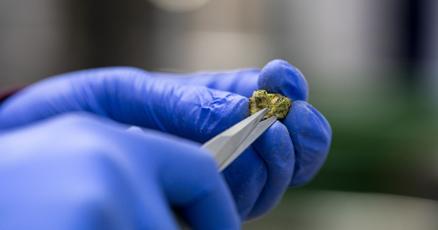[[{“value”:”
A proposed Colorado Springs ordinance that would preemptively limit where facilities selling recreational marijuana may operate in the city could possibly subvert the will of local voters, planning commissioners said during a special meeting Wednesday.
Colorado Springs currently does not permit recreational marijuana sales, but a citizen-backed question on the November ballot proposes authorizing the roughly 90 existing permitted medical marijuana stores in Colorado Springs to opt into also selling retail cannabis.
If residents vote to allow retail marijuana sales locally — this fall or later in the future — Council members Lynette Crow-Iverson and Brian Risley have introduced a proposed ordinance that would modify city code to prevent marijuana facilities that sell retail cannabis from operating within 1 mile of K-12 schools and residential child care and drug or alcohol treatment facilities.
The ordinance requires that the distance between the buildings is measured using a route of direct pedestrian access.
Currently, medical marijuana stores cannot operate within 1,000 feet of schools and child care facilities.
A map city planners provided Wednesday depicts Colorado Springs’ medical marijuana centers in relation to schools and child care and rehabilitation centers. The map measures the distance between the facilities using a 1-mile radius, rather than direct pedestrian access, Interim Planning Director Kevin Walker said. Direct pedestrian access is likely a shorter distance than the 1-mile radius shown on the map, he said.
All marijuana facilities in Colorado Springs are currently located within a 1-mile radius of schools, child care and rehab facilities. Under the proposed ordinance, retail marijuana sales would only be permitted on the city’s eastern side — “probably mak(ing) it very difficult to find a location” where recreational marijuana shops can operate, Walker said.
Planning commissioners including Marty Rickett, Colby Foos, Nadine Hensler, and Andrea Slattery worried Wednesday the proposed ordinance could potentially directly oppose voters’ wishes if residents choose to permit retail marijuana sales in city limits.
“It seems … once City Council heard (residents) were trying to (approve) recreational marijuana sales, this was a knee-jerk reaction to that, to say, ‘Even if that passes, we’re not going to let that happen. We’re going to supersede the will of the people if that’s what they so vote for,'” Rickett said.
Crow-Iverson told The Gazette on Wednesday the council is elected to govern on behalf of the people.
“That’s our form of government,” she said.
Rickett also worried if retail cannabis sales are authorized in Colorado Springs, and if the proposed ordinance is in place, it would encourage marijuana facilities to move locations to the eastern portion of the city, closer to military installations like Fort Carson and Peterson and Schriever Space Force bases.
Crow-Iverson has previously said the proposed 1-mile buffer is “not scientific.”
Hensler said Wednesday the ordinance is “too limiting” and is inconsistent with distance limitations required by other communities along the Front Range.
For example, Manitou Springs prohibits retail marijuana dispensaries from operating within 500 feet of educational institutions, child care and alcohol or drug rehabilitation facilities. In Boulder and Denver, retail cannabis dispensaries cannot operate within 1,000 feet of those services.
Crow-Iverson and other supporters have highlighted the potential health effects of marijuana, particularly if it has high-potency THC, the main psychoactive component in cannabis.
Studies show high-potency THC can cause sleep issues, anxiety and depression and can lead to addiction, said Henny Lasley, co-founder and executive director of One Chance to Grow Up. The organization protects children from the effects of THC, she said.
Data from the American Public Health Association in 2021 found cannabis availability significantly determines marijuana use, Lasley told commissioners. More opportunities to purchase recreational marijuana in Colorado Springs will increase the likelihood that more people, including children, will use it. Children who start using marijuana before age 13 run the risk of developing an addiction to the drug, she said.
No one spoke against the proposed ordinance Wednesday.
At a City Council meeting Aug. 13, Truman Bradley, the executive director of Marijuana Industry Group, said marijuana use among teens has fallen.
A survey by Healthy Kids Colorado shows the percentage of high school students who have used marijuana has dropped from 41% in 2009 to 26% in 2023. The survey did not include data from El Paso County because of a lack of participation.
In an Aug. 6 email, Bradley told The Gazette the citizen-backed ballot initiative to legalize retail cannabis sales in Colorado Springs puts “strong protections in place” to keep the drug from kids and schools.
“We cannot underscore this approach enough — keeping marijuana away from kids is a top priority,” Bradley said.
Planning commissioners voted 6-1 on Wednesday to recommend the City Council deny the ordinance. Commissioner David Robbins was the sole nay vote. Commissioner Jennifer Cecil was absent and Commissioner Jack Briggs recused himself.
Briggs, who is the president and CEO of the Springs Rescue Mission, testified at the Aug. 13 City Council meeting he is opposed to legalizing retail sales. He rarely meets someone whose path to addiction did not start with marijuana, he told the council.
The council can take the Planning Commission’s recommendation into account when considering the ordinance, but the commission’s vote is not binding. The council may still decide to approve the document.
“}]] A proposed Colorado Springs ordinance that would preemptively limit where facilities selling recreational marijuana may operate in the city could possibly subvert the will of local voters, planning commissioners said during a special meeting Wednesday. Read More


